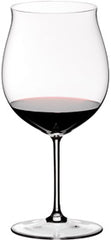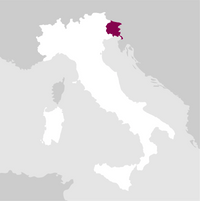Description
Vespa Rosso is the company's flagship wine par excellence. It balances power and finesse through a combination of indigenous and international varieties.
Details

Perfume

Color

Taste
Serve at:
16 - 18 °C.
Longevity:
10 - 15 years
Decanting time:
1 hour

Pairings
- Start up year: 1997
- Oenologist: Emilio del Medico
- Bottles produced: 220.000
- Hectares: 27


| Name | Bastianich Vespa Rosso 2018 |
|---|---|
| Type | Red still |
| Denomination | Venezia Giulia IGT |
| Vintage | 2018 |
| Size | 0,75 l |
| Alcohol content | 13.0% by volume |
| Grape varieties | 50% Merlot, 30% Refosco dal Peduncolo Rosso, 20% Schioppettino |
| Country | Italy |
| Region | Friuli-Venezia Giulia |
| Vendor | Bastianich |
| Origin | Cividale del Friuli (Udine). |
| Climate | Altitude: 150-200 m. a.s.l. Exposure: South, South-East, and South-West. |
| Soil composition | Eocene marl with a limestone base. |
| Plants per hectare | 4,000-8,000. |
| Yield per hectare | 5,000-6,000 kg/hectare. |
| Harvest | By hand, with small crates, between the 10th of September to the 20th of October, according to the variety. |
| Fermentation temperature | 77-80 °F (25-27 °C) |
| Wine making | Grapes are destemmed and crushed. Fermentation occurs in temperature-controlled stainless steel tanks between 25 and 27°C. During fermentation, careful daily pumping-over is carried out (15 to 18 days). At the end of maceration and alcoholic fermentation, the grapes are pressed with a vertical press to extract only the sweetest tannins. |
| Aging | After a short period of settling, the wine is racked into stainless steel tanks for complete malolactic fermentation. The wine is transferred, always separately, into French oak barriques (70% used and 30% new), where the wines are aged for 18 months in wood. Finally, the wines are blended and bottled, resting in the bottle for another 12 8 months before marketing. |
| Total acidity | 5.3 gr/L |
| PH | 3.2 |
| Residual sugar | 6.0 gr/L |
| Allergens | Contains sulphites |




